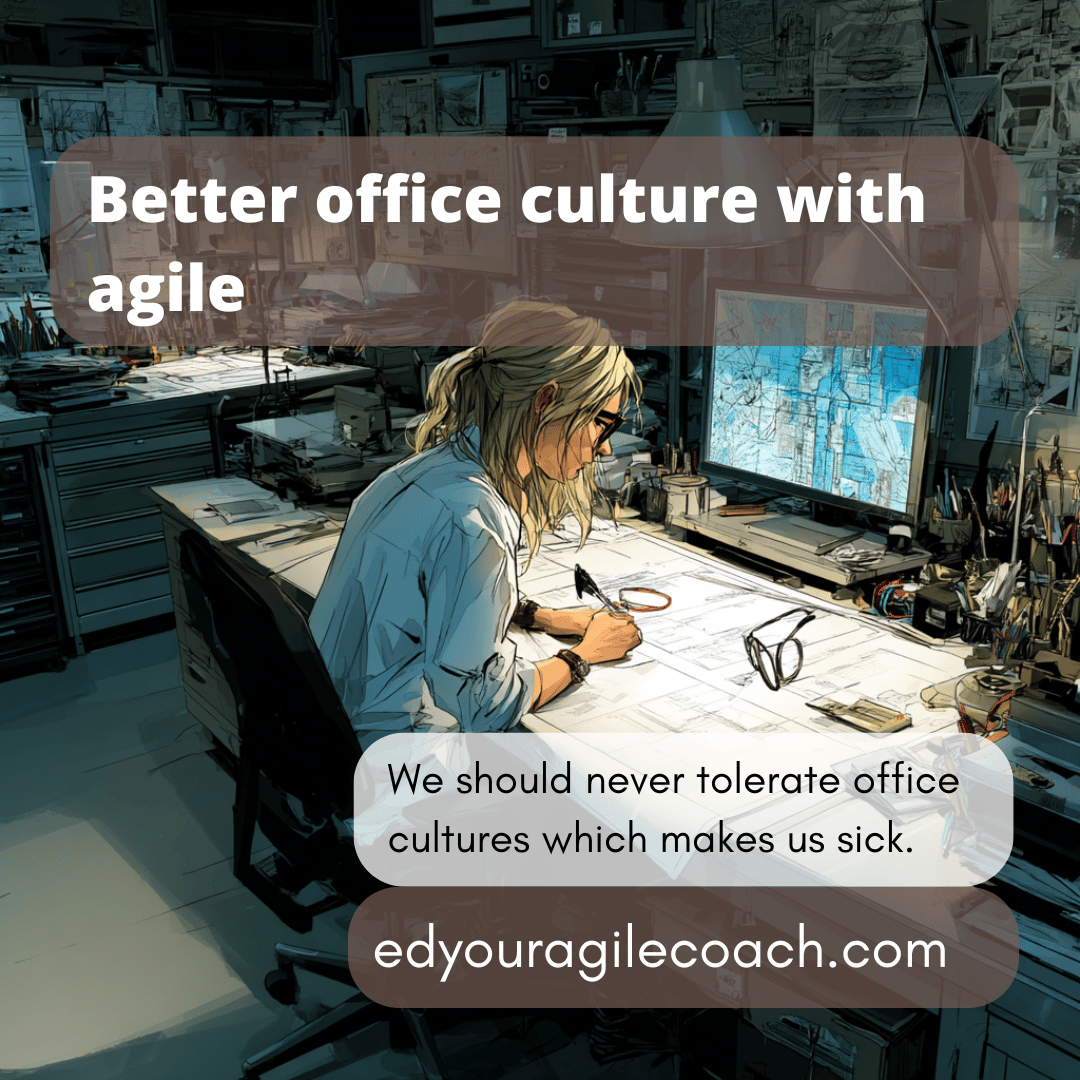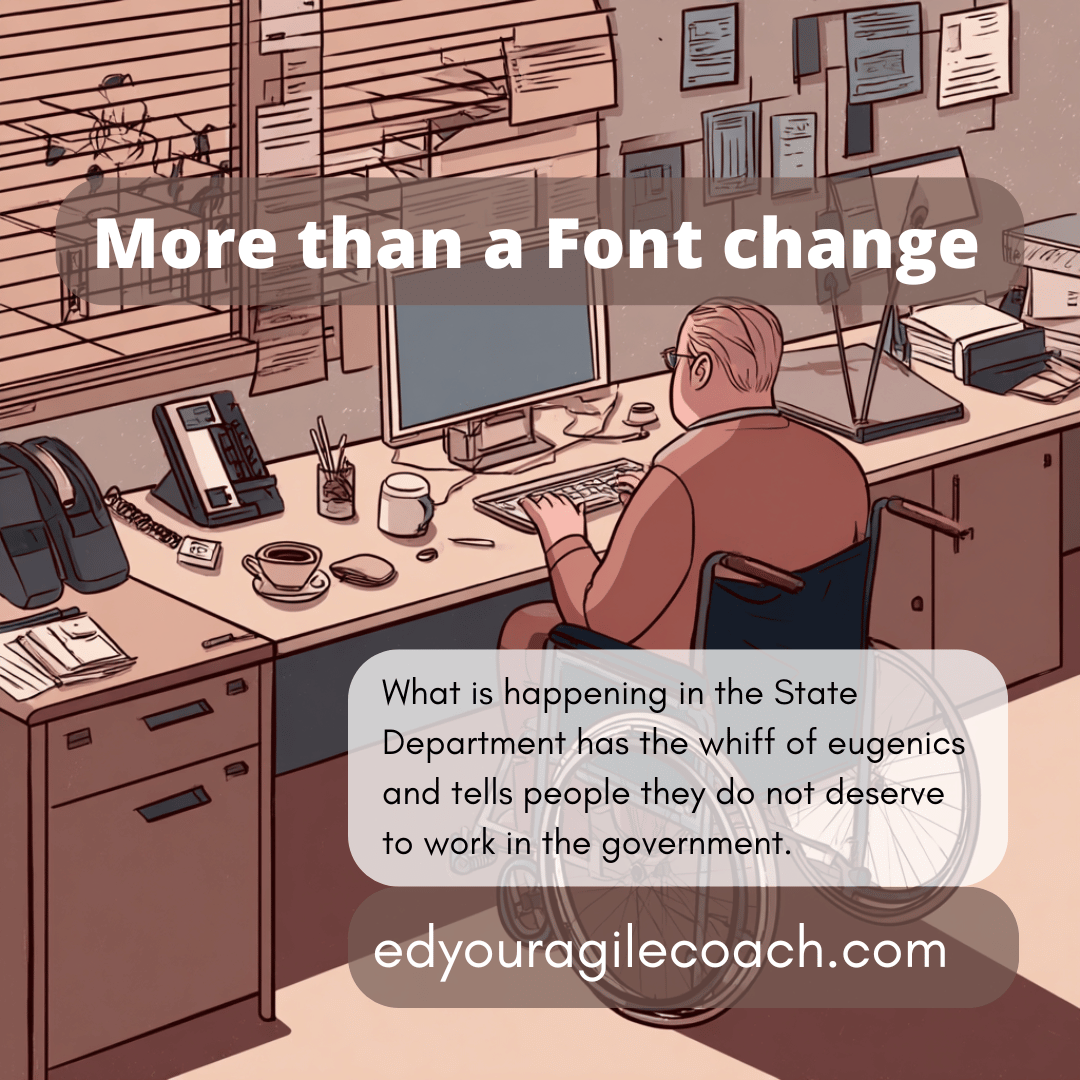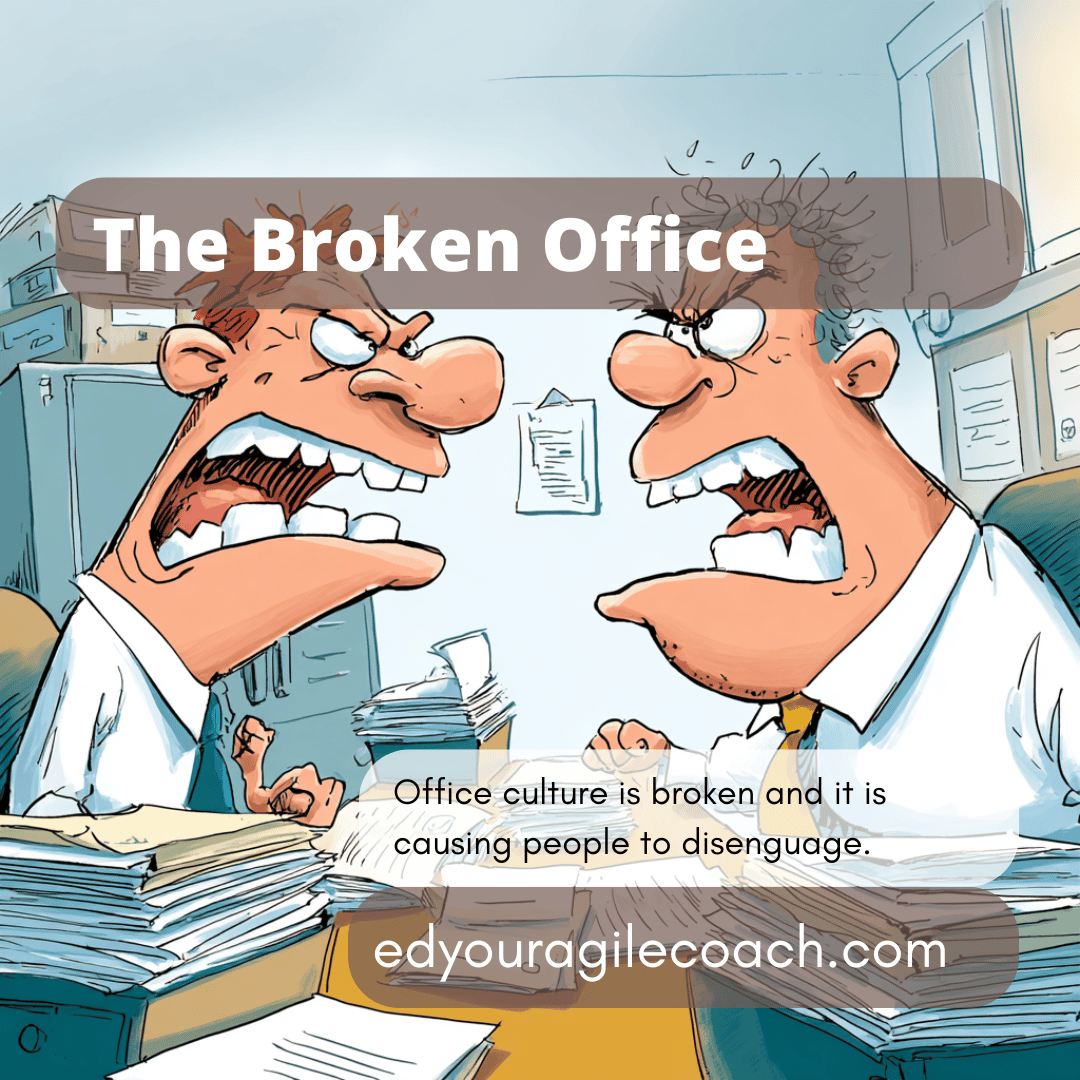Creating a better office with agile.

The business world is highly competitive and stressful. Fortunes can rise and fall in the afternoon. The pressures and lack of security in many businesses create unhealthy behaviors. Some self-medicate with alcohol or stronger substances—others use food as a means of dealing with the daily drama at the office. Finally, much of the pressure is often redirected to rage and abuse toward others with less power in the organization. These kinds of situations are the worst because they create a system of abuse and mistreatment, which eventually becomes part of the organizational culture. It is becoming a growing problem; we should discuss it as this economy becomes more uncertain.
I have been an advocate for healthier work environments for a long time. As a society, we do not tolerate construction sites where people are routinely killed or injured. Likewise, we should not tolerate office environments where people have substance use disorder, abuse, and mental illness. It is not difficult to argue that someone with a substance abuse problem will struggle to meet the needs of customers than someone in recovery or who is clean and sober.
Over my career, I over-ate to deal with stress, and it took bariatric surgery to break that cycle. I am certain that other professionals tell similar stories of coping with the stresses of work in a way that made their lives worse. Thus, the burning question is, why is this happening so consistently?
In his book, "Man's Search for Meaning," Victor Frankl says that three things provide a human being meaning in our contemporary world. They are:
- Creating a work or doing a deed.
- By experiencing something or encountering someone.
- By the attitude we take toward unavoidable suffering.
It is evident that according to this view, work should satisfy an essential human need because each day, everyone in the office, from the janitor who cleans up to the hot shot salespeople, is doing the deeds necessary to keep the company running properly. Alas, it does not feel that way for a few reasons.
In his book, "The Unaccountability Machine," Dan Davies points out that increasing debt levels predicate business. Hence, the level of debt demands that business leaders concentrate on costs instead of growing revenue or improving innovation. It explains why nursing homes get sued regularly; they often skimp on necessary care to maintain lower costs. The same thing happens to a company when purchased in a leveraged buyout. The company has to pay those junk bonds, and everything related to the business will suffer. It includes the people's mental well-being and delivering value to the company.
I also suspect that many employees, even white-collar professionals, get treated like mere expenses or resources instead of people who actually deliver value to the company. It is why I cringe whenever an executive refers to the people working on a project as resources. It is dehumanizing, and people quickly realize they are expendable. Since people feel they are expendable, they often do not have much enthusiasm, so they do just enough to get by and avoid negative attention.
Executives have created ingenious methods to force people to care more to counter this dynamic. The worst is the notion of stack-ranking employees. The top 20% receive promotions until they reach their level of incompetence. The middle 70% remain in their jobs with a meager salary increase, and the bottom 10% are fired unceremoniously with a level of shameful stigma. I agree with Doctor Anna Kallschmidt that this situation creates an abusive situation that undermines cooperation. It creates unhealthy competitiveness where if someone is to win, someone else must lose.
We can do better. First, every person working in the organization must understand how they drive value. Next, executives must balance cost control with revenue growth and investment. People need to feel like they are building something or accomplishing a deed instead of being just the help at the organization. Finally, we must harness healthy competitiveness to unite organizations rather than pull them apart.
Work will always be stressful, but we can do some things to lower the pressure and provide dignity and purpose to others. It seems like a smart way to increase the value the company delivers.
Until next time.




Comments ()